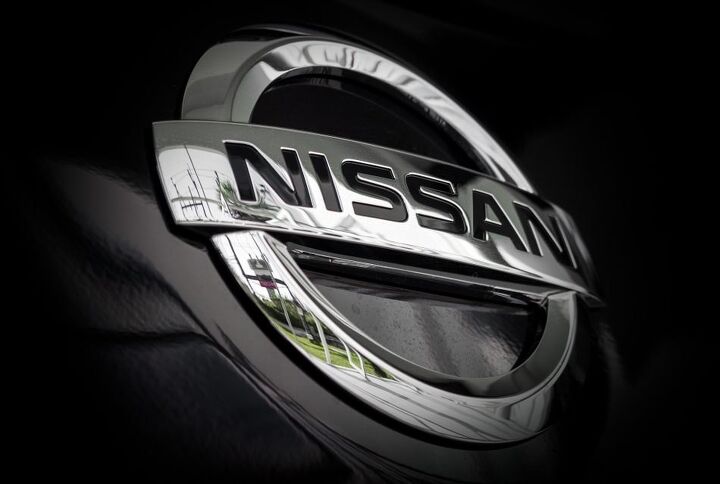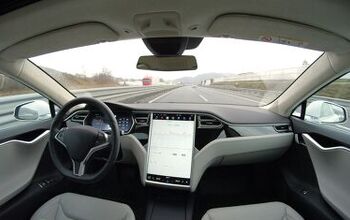Moody's Downgrades Nissan's Credit Ranking; You Probably Know Why

Save for one article about adorable baby ducks, we’ve dumped on Nissan all week. Circumstances being what they are, there wasn’t much of an alternative.
Between a dismal earnings report showcasing a 45 percent decline in annual operating profit for the year ending in March, a forecasted 28 percent drop in profits for this year, corporate strife between the automaker and top shareholder Renault SA, and the ongoing legal troubles with former chairman Carlos Ghosn, it’s been a bad few months.
Nissan’s share price is also in decline for some strange reason, and, following a negative outlook from S&P, Moody’s downgraded the automaker’s credit rating from an A2 to an A3. That’s right, one entire notch lower. That clinches it. Nissan is officially done forever. If the 2008 financial crisis has taught us anything, it’s that you can absolutely trust rating agencies to be arbiters of the future.
Alright, that’s more than enough sarcasm for one post.
Basically, Nissan’s current situation shows acres of room for improvement, and any major changes it can make are, by its own admission, likely to take some time. Financial service companies, which have to prove their value somehow, have taken this into account and adjusted their outlook for the automaker. Ultimately, an A3 isn’t a bad rating — it’s just not as good as an A2. Either way, Nissan is still technically an investment-grade property.
Reuters had more:
“The downgrade reflects the continuing slide in Nissan’s profitability, driven by weak sales in the U.S., its largest market,” Moody’s Vice President Motoki Yanase said in a statement.
While Nissan’s new strategy focuses on margin over unit sales growth and refreshing old models to improve its brand value, the ratings agency expects the overhaul will take “several years.”
“The negative outlook on Nissan reflects execution risk as Nissan implements its business strategies globally, reforms its corporate governance and stabilises [sic] its alliance with Renault,” it said.
Hopefully, the Japanese automaker can turn the ship around and head back in the right direction. However, it’s not obvious what that will look like at this juncture. All of these forces are adding pressure for Nissan to pull the trigger on a merger with Renault, something Nissan absolutely does not want. Not that that’s a bulletproof gambit, anyway. Moving away from its former volume mindset and focusing on higher-margin vehicles seems a pragmatic approach, but it’s one which will take time and money, meaning more dark days ahead before sunny skies return.
[Image: Memory Stockphoto/Shutterstock]

A staunch consumer advocate tracking industry trends and regulation. Before joining TTAC, Matt spent a decade working for marketing and research firms based in NYC. Clients included several of the world’s largest automakers, global tire brands, and aftermarket part suppliers. Dissatisfied with the corporate world and resentful of having to wear suits everyday, he pivoted to writing about cars. Since then, that man has become an ardent supporter of the right-to-repair movement, been interviewed on the auto industry by national radio broadcasts, driven more rental cars than anyone ever should, participated in amateur rallying events, and received the requisite minimum training as sanctioned by the SCCA. Handy with a wrench, Matt grew up surrounded by Detroit auto workers and managed to get a pizza delivery job before he was legally eligible. He later found himself driving box trucks through Manhattan, guaranteeing future sympathy for actual truckers. He continues to conduct research pertaining to the automotive sector as an independent contractor and has since moved back to his native Michigan, closer to where the cars are born. A contrarian, Matt claims to prefer understeer — stating that front and all-wheel drive vehicles cater best to his driving style.
More by Matt Posky
Latest Car Reviews
Read moreLatest Product Reviews
Read moreRecent Comments
- Jalop1991 This is easy. The CX-5 is gawdawful uncomfortable.
- Aaron This is literally my junkyard for my 2001 Chevy Tracker, 1998 Volvo S70, and 2002 Toyota Camry. Glad you could visit!
- Lou_BC Let me see. Humans are fallible. They can be very greedy. Politicians sell to the highest bidder. What could go wrong?
- SPPPP Vibrant color 9 times out of 10 for me. There may be a few shapes that look just right in metallic gray, for example. There are a few nices ones out there. And I like VW "White Silver". But I'd usually prefer a deep red or a vibrant metallic green. Or a bright blue.
- 28-Cars-Later Say it ain't so, so reboot #6* isn't going to change anything?[list=1][*]V4-6-8 and High "Tech" 4100.[/*][*]Front wheel drive sooooo modern.[/*][*]NOrthSTARt.[/*][*]Catera wooooo.[/*][*]ATS all the things.[/*][*]We're *are* your daddy's Tesla. [/*][/list=1]


































Comments
Join the conversation
“Nissan’s new strategy focuses on margin over unit sales growth...” I’m not actually sure that this is a good idea. There are a limited number of people who can afford new cars. There is an even more limited number of people who can afford expensive new cars, and unless the nature of global capitalism changes unexpectedly, their number is likely to decrease, rather than increase. And most automakers seem to be competing for these buyers. Mazda is taking this same tack, for example. Brand seems to matter as much as anything in this segment, and Nissan has some baggage there, if these other comments are any indication. Maybe the forces driving the success of Aldi, Family Dollar, Five Below, etc. don’t apply to the automotive market. But I’ll bet they do, especially if credit gets more expensive, which seems likely.
If credit gets tight and remains tight for a period of time both Nissan and Mitsubishi are in real trouble. Both need to work on their quality which will take time but better quality would help maintain customers and improve their desirability. The question would be even if Nissan and Mitsubishi did those things would they be able to hold out long enough or is it too late.